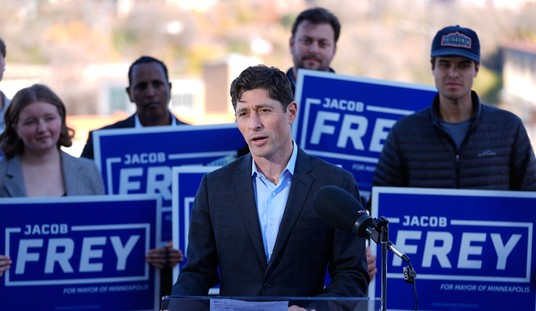Paul Kirk, the appointed interim successor for the late Ted Kennedy in the Senate, has vowed to provide the 60th vote for ObamaCare regardless of whether Scott Brown wins Tuesday’s special election to fill the seat. But can Kirk vote on any bill after Tuesday? Fred Barnes reports on GOP lawyers who have checked the law in Massachusetts and the precedent in the Senate, and says that Kirk becomes a lame duck without a vote as soon as the polls close on Tuesday:
Appointed Senator Paul Kirk will lose his vote in the Senate after Tuesday’s election in Massachusetts of a new senator and cannot be the 60th vote for Democratic health care legislation, according to Republican attorneys. …
But in the days after the election, it is Kirk’s status that matters, not Brown’s. Massachusetts law says that an appointed senator remains in office “until election and qualification of the person duly elected to fill the vacancy.” The vacancy occurred when Senator Edward Kennedy died in August. Kirk was picked as interim senator by Governor Deval Patrick.
Democrats in Massachusetts have talked about delaying Brown’s “certification,” should he defeat Democrat Martha Coakley on Tuesday. Their aim would be to allow Kirk to remain in the Senate and vote the health care bill.
But based on Massachusetts law, Senate precedent, and the U.S. Constitution, Republican attorneys said Kirk will no longer be a senator after election day, period. Brown meets the age, citizenship, and residency requirements in the Constitution to qualify for the Senate. “Qualification” does not require state “certification,” the lawyers said.
In this case, we can play a non-corruption game of “follow the money.” The pay date for a new Senator who wins a special election starts the following day after the polls close. Republican John Tower of Texas and then-Democrat Strom Thurmond are both precedents for this action. In both cases, their terms started on the day after election, even though it took weeks for their certification by the state. It’s not clear from Kristol’s article whether they were allowed to cast votes in the Senate, but what is clear is that they were recognized as occupying the seat — and that is an exclusive occupation. Their appointed predecessors could not possess the same seat at the same time, and therefore were excluded from Senate business.
The same would be true if Martha Coakley wins the election, although it won’t present a problem for Democrats in that instance. As soon as the election concludes, the presumption is that the voters of Massachusetts have chosen their Senator. At that point, the rights of the appointed interim Senator conclude. In the case of a Coakley win, that just means a few days of delay for any vote of consequence. In the case of a Brown win … it means the end of a 60-vote supermajority on ObamaCare and other items on the radical Democratic agenda, starting on Wednesday.








Join the conversation as a VIP Member